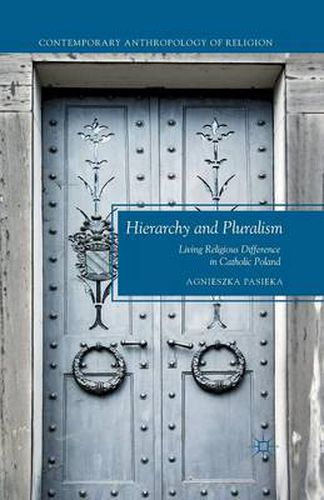Readings Newsletter
Become a Readings Member to make your shopping experience even easier.
Sign in or sign up for free!
You’re not far away from qualifying for FREE standard shipping within Australia
You’ve qualified for FREE standard shipping within Australia
The cart is loading…






This title is printed to order. This book may have been self-published. If so, we cannot guarantee the quality of the content. In the main most books will have gone through the editing process however some may not. We therefore suggest that you be aware of this before ordering this book. If in doubt check either the author or publisher’s details as we are unable to accept any returns unless they are faulty. Please contact us if you have any questions.
What is the place of pluralism in the context of a dominant religion? How does the perception of religion as tradition and culture affect pluralism? Why do minorities’ demands for recognition often transform into exclusion? Through her ethnography of a multireligious community in rural Poland, Agnieszka Pasieka demonstrates how we can better understand the nature of pluralism by examining how it is lived and experienced within a homogenous society. Painting a vivid picture of everyday interreligious sociability, Pasieka reveals the constant balance of rural inhabitants between ideas of sameness and difference, and the manifold ways in which religion informs local cooperation, relations among neighbors and friends, and common attempts to make pluralism. The book traces these developments through several decades of the community’s history, unveiling and exposing the paradoxes inscribed into the practice and discourse of pluralism and complex processes of negotiation of social identities.
$9.00 standard shipping within Australia
FREE standard shipping within Australia for orders over $100.00
Express & International shipping calculated at checkout
This title is printed to order. This book may have been self-published. If so, we cannot guarantee the quality of the content. In the main most books will have gone through the editing process however some may not. We therefore suggest that you be aware of this before ordering this book. If in doubt check either the author or publisher’s details as we are unable to accept any returns unless they are faulty. Please contact us if you have any questions.
What is the place of pluralism in the context of a dominant religion? How does the perception of religion as tradition and culture affect pluralism? Why do minorities’ demands for recognition often transform into exclusion? Through her ethnography of a multireligious community in rural Poland, Agnieszka Pasieka demonstrates how we can better understand the nature of pluralism by examining how it is lived and experienced within a homogenous society. Painting a vivid picture of everyday interreligious sociability, Pasieka reveals the constant balance of rural inhabitants between ideas of sameness and difference, and the manifold ways in which religion informs local cooperation, relations among neighbors and friends, and common attempts to make pluralism. The book traces these developments through several decades of the community’s history, unveiling and exposing the paradoxes inscribed into the practice and discourse of pluralism and complex processes of negotiation of social identities.